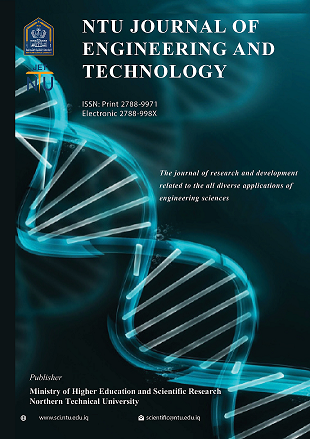Influence of Using ACO Algorithm in STATCOM Performance
DOI:
https://doi.org/10.56286/ntujet.v3i1.821Keywords:
ACO algorithm GA. PI control ITAE Reactive power.Abstract
Flexible alternating current transmission systems (FACTS) are technologies that rely on the use of high-power electronic equipment and advanced control methods to increase the ability of electrical transmission lines to transmit the largest amount of electrical power.Static_ synchronous _compensator (STATCOM) is one of FACTS_ family It has a rapid ability to supply or absorb reactive power from the system, traditional controller in STATCOM is (PID) or (PI). The controller is used to control the currents and voltages. In (STATCOM) there are two control loop, the inner loop which is represented by controlling the source current, and the outer loop which is used to control the voltage of the DC-link energy –storage- capacitor (vdc). Many algorithms are used in optimization to predict a specific behavior and to find the best solution for it. Two optimization methods were used Ant Colony Algorithm (ACO) and Genetic Algorithm (GA) to adjust the parameters of the outer PI controller. This unit is responsible for adjusting (vdc). The capacitor voltage is converted by the STATCOM inverter into a three-phase voltage, which is used to supply the load with required reactive power. Through the simulation and control process, the results demonstrated the effectiveness of the compensator in supplying the reactive power to the linear or non-linear loads, The results also showed that using the ACO technique that the integrated time absolute error ( ITAE) was reduced which gives more precise in adjusting the PI control parameters Which is achieved best Vd.c response ,compared with the GA and ziklur-nichlos method , by measuring the response of the lowest settling time (TS) and minimal peak overshoot (P-ov) .
Downloads
Additional Files
Published
Issue
Section
License
Copyright (c) 2024 Maha Al-Flaiyeh

This work is licensed under a Creative Commons Attribution 4.0 International License.











